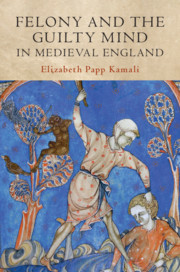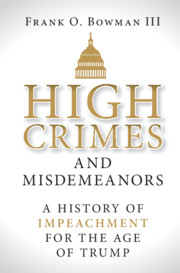Edward Cavanagh, University of Cambridge, is publishing Legal Thought and Empires: Analogies, Principles, and Authorities From the Ancients to the Moderns in Jurisprudence: An International Journal of Legal and Political Thought (2019). Here is the abstract.
Empire reveals some of the reasons why the history of legal thought should not be prepared in precisely the same way as the history of political thought. This article, beginning in the Mediterranean before adopting a more transnational scope, identifies analogy, principle, and authority as some of the principal modes of legal reasoning, and then seeks to examine several instances of their application within different imperial and colonial contexts. The British Empire is the most obvious trajectory in what follows. Like many other modern empires, however, it is optimally approached in view of longer term institutional and intellectual developments in Europe. Substantively and procedurally, European law became elaborate over time as dominant communities expanded to interact with more fixed communities. The motivations of those lawyers who elaborated this body of law were various and must be comprehended. While imperialism spurred innovation and change in the kind of objectives that were tasked to legal thinkers, what remained essential to the realisation of those objectives was their ability to enjoy recourse to those very modes of reasoning (analogies, principles, and authorities) that had characterised the development of European legal thought for millennia.Download the article from SSRN at the link.






